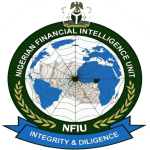CBN Reassures Against Hyperinflation Amid Economic Challenges
By Patience Ikpeme
In response to growing concerns over inflation in Nigeria, the Central Bank of Nigeria (CBN) has provided assurances to citizens and the business community that the country will not descend into hyperinflation.
This commitment was expressed during a panel discussion at the Nigeria Economic Summit held in Abuja, where monetary policy, fiscal reforms, and the critical need for private sector investment were front and center.
Dr. Adetona Adedeji, the Acting Director of Banking Supervision at the CBN, spoke about the bank’s dual mandate to manage inflation while maintaining an operational environment for businesses. “We don’t want to get to the corridor of hyperinflation,” he stated emphatically, urging the Nigerian public to understand the complexities of the CBN’s policies. “Our priority now is price stability, but we are not unmindful that businesses still have to continue operating.”
The CBN’s ongoing strategy involves incremental increases in interest rates aimed at curbing inflation, which currently poses significant challenges to the economy. Dr. Adedeji acknowledged the pressure these rate hikes place on businesses but reassured stakeholders that the overarching goal remains stability in the economy. “Our approach is geared toward ensuring that the economy functions without the devastating impacts of uncontrolled inflation,” he elaborated.
Dr. Adedeji also highlighted the precarious state of Nigeria’s foreign exchange market. He noted efforts to combat rent-seeking behaviors that have often destabilized this market. “The rent-seekers are not finding it easy again. We are trying to achieve an equilibrium,” he said, emphasizing the CBN’s commitment to creating a balanced foreign exchange system conducive to economic growth.
Liquidity challenges have been linked to disbursements made by the Federal Accounts Allocation Committee (FAAC), leading to fluctuations in foreign exchange demand. Dr. Adedeji reassured the audience of the CBN’s active collaboration with fiscal authorities to address this hurdle. “We are working diligently to manage this challenge and stabilize the market,” he said.
In an age of increasing cyber threats, Dr. Adedeji also called for Nigerian banks to significantly bolster their cybersecurity measures. With the rapid innovations in electronic banking, he stressed the importance of safeguarding customer deposits against potential cybercriminal activity. “We want a very robust risk management system,” he asserted, reflecting an urgent need for the banking sector to stay ahead of evolving security threats.
Emphasizing the importance of customer trust, he added, “We don’t want a situation where, after having convinced people to deposit their funds in the bank, some criminals hack the system and steal their money.”
Addressing the panel, Mrs. Oluwasoromidayo George, Chairman of the Non-Alcoholic Drinks Sector of the Manufacturers Association of Nigeria (MAN), articulated the pressing concerns faced by the sector. “We’ve been experiencing declining sales performance, and productivity dipped from 9.98 percent in Q1 to around 8.4 percent in Q2,” she disclosed, while also pinpointing challenges tied to high energy costs, inflation, currency devaluation, and increasing interest rates.
Nevertheless, Mrs. George expressed cautious optimism regarding the government’s ongoing dialogue with the private sector and its potential to yield constructive outcomes amidst the current economic climate.




